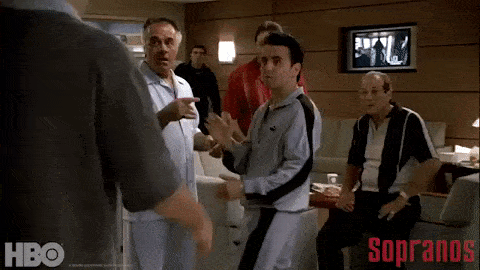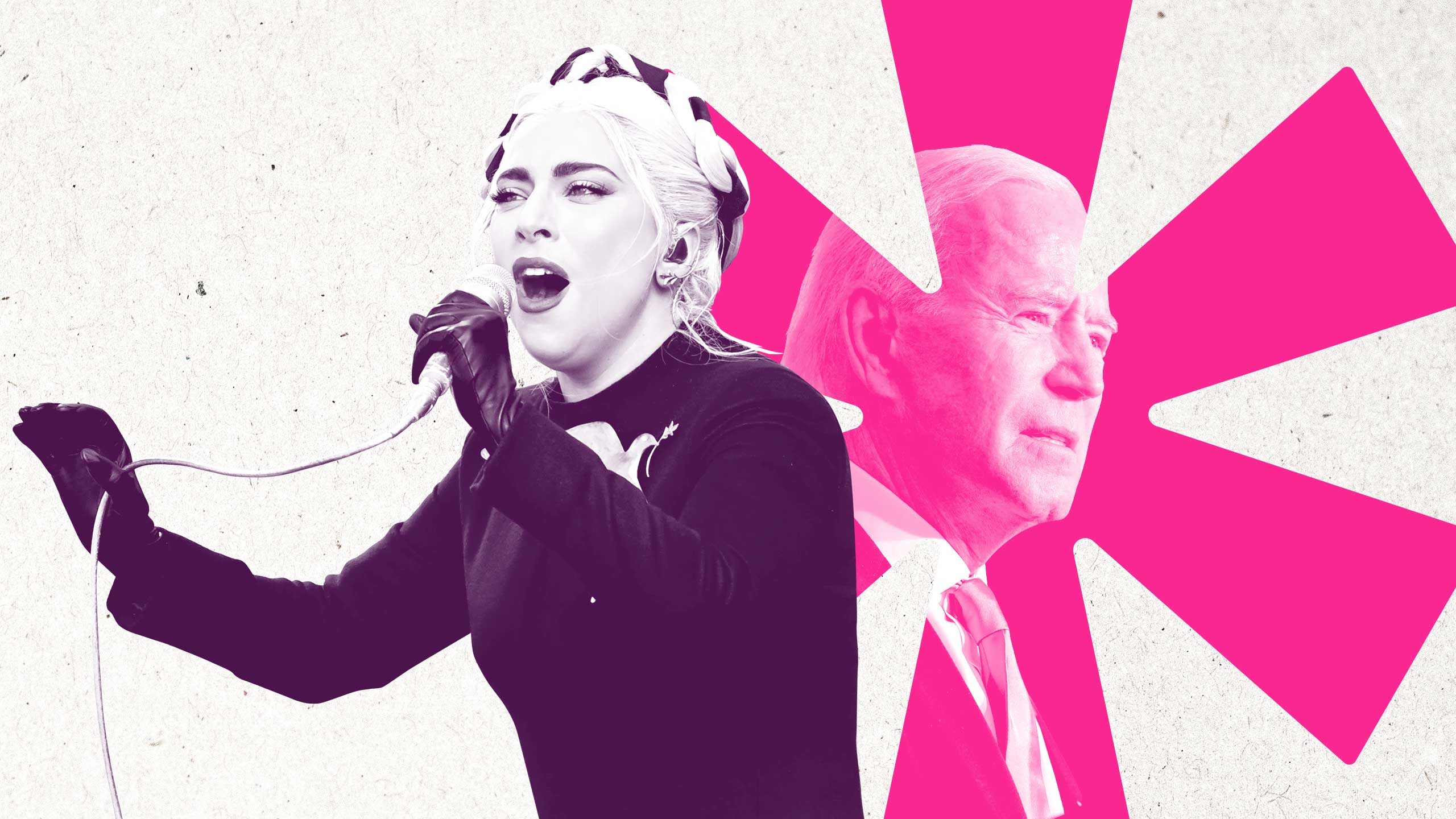Buongiorno a tutti! It’s senior editor Erica Lenti, here to once again usher you through the week’s queer news, culture and politics. In this week’s “Topline,” coming to you on the heels of Joe Biden’s inauguration, we celebrate some long-awaited victories for our neighbours to the south, and bid adieu to four terrible, awful, no-good years of presidential history. But don’t forget: This is just a sample. Subscribe to Xtra Weekly for the full edition!
What’s the buzz? 🐝
It was arguably the strangest of American presidential inaugurations in contemporary history: Flags in place of people lining the National Mall, an eerie stillness about the Capitol, security fences and militia fortressing the new president. And yet the lack of pizzazz—save for democratic saviour Lady Gaga—felt awfully fitting for a moment shadowed by 400,000 American COVID-19 deaths and an insurrection just weeks prior. There was nothing ordinary about these past months of lockdown, protest, political chaos; why should inauguration day be any different?
The theme of the day: “America united.” That may have been a bit of a misnomer, given the 70 million Americans who voted for Donald Trump in the 2020 election. But the sentiment has been brewing since news of Biden’s win in November. Across the U.S., LGBTQ2S+ folks have especially embraced a shift toward togetherness. As minister Ashton Totten-Reynolds explained in a dispatch for Xtra this week, it was a feeling of unity that propelled his involvement in Georgia’s run-off elections earlier this month—that, if progressives in the state banded together, they could see the change they’d so desired over the decades. He wasn’t wrong: Both Democratic candidates won their elections, flipping the Senate.
But not everyone is buying into Biden’s shtick. As a virus that disproportionately affects people from minority communities rages on, and as the country continues to reel over growing racial inequities, it’s clear that America remains fractured in the wake of Trump’s presidency.
And where was said outgoing commander-in-chief? Flying back to Mar-a-Lago, his sunny resort in Palm Beach, Florida—but not before pardoning 73 Americans. He exits the Oval Office with a litany of legal problems, including a looming impeachment trial. And like a stain you just can’t scrub out of your carpet, Trump promises he’ll be back “in some form.”
What were we thinking? 📺
I didn’t plan it this way, but I’ve been binge-watching The Sopranos through the chaos that was the U.S. election and the ensuing fallout on Capitol Hill. For a show that premiered more than two decades ago, so much of it feels relevant to the Trump era: Its protagonists are actually antagonists, immoral mafiosos spewing racism and homophobia in a post-9/11 America. Its characters are deeply flawed, limited by toxic masculinity and outdated traditions (“In this house, it’s [still] 1954,” Tony Soprano tells his daughter in an early episode). And a new villain always seems to creep their way in, season by season—a hard-nosed member of the New York family, a freshly out of prison ex-con, a sad sap just trying to follow the rules.
Tony and his meddling crew are very much your standard Italian-American gangsters—the show was not novel in that regard. But what The Sopranos offered me, and its early audience, was an intimate look inside, however fictional, the mind of a criminal. The show starts out with Tony (James Gandolfini), a top boss of a New Jersey crew, talking to a therapist, Jennifer Melfi (Lorraine Bracco). It’s an unorthodox decision, antithetical to the mobster code of conduct Tony abides by, and he’s saluted for it. But over the course of the series, Melfi becomes more and more disillusioned with Tony and his grandeur; he’s a criminal, through and through. He makes selfish decisions for his bottom line and in order to maintain his power over others. He routinely harms his biological family and his famiglia. Whatever empathy I had for Tony Soprano in early episodes quickly dissipated as the seasons wore on: He was a bad person, period.
Watching the show through October, then November, then December, I couldn’t help but draw parallels between the America of my paesans, the Sopranos, and the America on CNN. President No. 45 was a criminal, a man whose racism, homophobia and transphobia led his decision-making over four gruelling years as commander-in-chief. He will be remembered for separating families at borders, for choosing, in his final days, to disrupt the protections and rights of LGBTQ2S+ people, for encouraging throngs of supporters to commit acts of domestic terrorism in the heart of America’s democracy. Donald Trump operated on a power trip for four years, colluding with dictators and spreading lies—anything to maintain his base. At least Tony Soprano admitted who he was to the world.
Some fans of The Sopranos will argue until they’re red in the face that—spoiler alert—Tony does not die in the final scene of the series, when, in the midst of a family dinner, the screen cuts jarringly to black. But I’m not so interested in whether he lives or not. With much of his crew killed or injured, it’s inevitable that Tony’s reign will come to an end. The power trips cease. The yes-men disappear. Maybe he settles into a quiet life in New Jersey—or maybe he ends up exiled in Florida golfing for the rest of his days. He’s still a terrible person.
The Sopranos is but a glimpse into the rise and fall of a criminal, what critics call some of the best television of our time. It is undoubtedly good TV. But after spending my days watching a powerful man destroy the lives of those less powerful around him, and spending my evenings watching a mafioso kill anyone in his way, I’m exhausted. To supplement this new era of American politics, I will instead opt for something lighter: This time, I’m thinking Veep.
Other Xtra news 📰
👉After an inclusive fat-centric dance party at last year’s Manchester Pride, Xtra contributor Gina Tonic calls for more body-positive events for queer folks everywhere.
👉Safe sexts. As more people turn to sexting to stay safe during the COVID-19 pandemic, Noelle Perdue offers a guide to keeping your messages secure while you get it on virtually.
👉Some lay blame on old-school journalists, others point to hateful politicians. Either way, anti-trans sentiment has become the U.K.’s accepted bigotry. Here’s why British media has become so transphobic.
👉Get more headlines! Subscribe.
Gifbox
Celebrating the end of the Trump era like:

Credit: Giphy


 Why you can trust Xtra
Why you can trust Xtra


